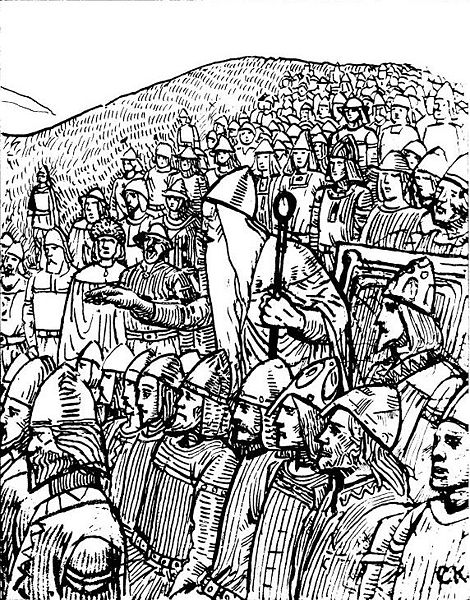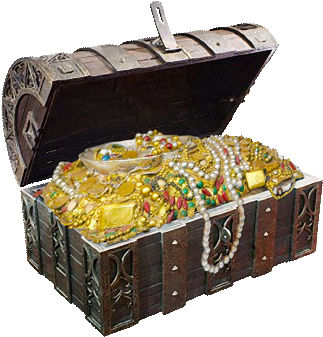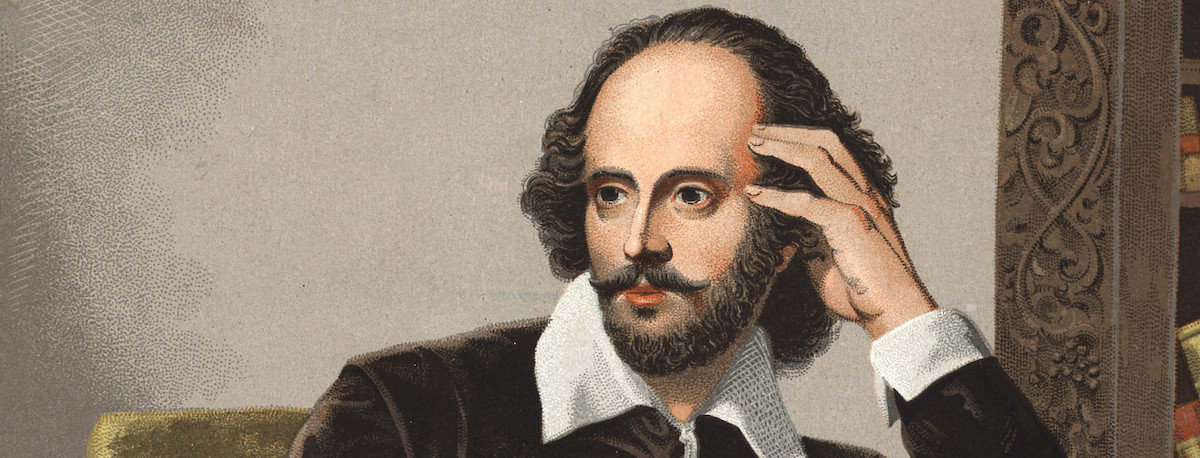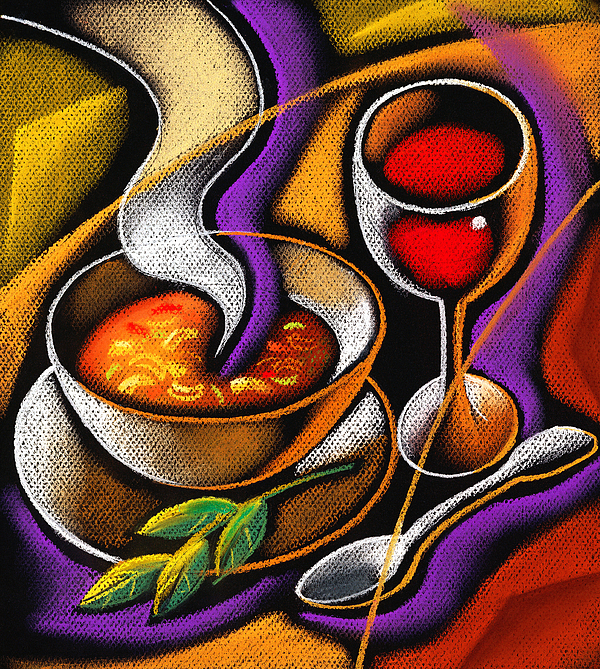The BEST Wedding

A man from Halland told them about a great wedding that he had been present at in Finnveden, among the wild people of Smaland. During the celebrations, a dispute had broken out concerning a horse-deal, and knives had quickly appeared; whereupon the bride and her attendant maidens had laughed delightedly and applauded, and had encouraged the disputants to settle the matter there and then.
However, when the bride, who belonged to a well-known local family, saw her uncle’s eye gouged out by one of the bridegroom’s kinsmen, she had seized a torch from the wall and hit her bridegroom over the head with it, so that his hair caught fire. One of the bridesmaids had, with great presence of mind, forced her petticoat over his head, and twisted it tight, thereby saving his life, though he screamed fearfully and his head, when it appeared again, was burned black and raw. Meanwhile, the fire had caught the straw on the floor, and eleven drunken or wounded men lying in it had been burned to death; so that this wedding was generally agreed to have been one of the best they had had for years in Finnveden, and one that would be long remembered. The bride and bridegroom were now living together in blissful happiness, although he had not been able to grow new hair to replace that which he had lost in the fire.
A Session at the Thing

[Many problems were settled at the Thing, but…] when a difficult altercation had arisen between stubborn men, so that no agreement could be arrived at, the matter would be decided by single combat between the parties concerned on the flat grass before the Stone. This was regarded as the best entertainment of all, and any Thing during which at least three corpses had not been carried from the combat ground would be thought a poor and unworthy session.
Kings Used to Send Envoys to the Thing
The King at Uppsala and the King of the Danes had been wont to send trusted men to the Thing, partly to safeguard their rights and partly to keep an eye open for outlaws who had escaped their clutches; but the farmers had greeted these envoys by removing their heads, which they had then smoked over juniper fires and sent back to their masters, to signify to the Kings that the border peoples preferred to manage their own affairs.
The End of the World That Didn’t Happen
The year ended without the smallest sign having appeared in the sky, and there ensued a period of calm in the border country. Relations with the Smalanders continued to be peaceful, and there were no local incidents worth mentioning, apart from the usual murders at feasts and weddings, and a few men burned in their houses as the result of neighborly disputes.

The Treasure Chest

It was filled with gold, which the river water had not tarnished. Most of it was coins, of many different sorts and sizes, filling the chest to its rim; but among them, many precious ornaments lay bedded, rings great and small, chains, necklaces, clasps, bracelets and suchlike, marvelously worked–“like lovely pieces of pork,” thought Toke, “in a soup of good pease.”
The Widow
They had with them Torgunn, Rapp’s widow, whom they had found starving and half-dead in the wild country. She had escaped from the bandits, and had run and walked as far as her legs would take her. Toke’s men had taken turns to carry her back, and three of them had already proposed marriage to her, which had revived her spirits; but none of them, they said sadly, had seemed to her to be as good a man as Rapp.








 He. . .
He. . .



 Why, after all, should anyone want to plant such a man on me? What could I get up to on the journey? What, if it came to that, could he get up to on the journey? Extract a confession from me? Prevent me seizing command of the aircraft or overthrowing the Constitution of the United States?. . . No; clearly, he must be what he seemed, an indifferent-honest executive, perhaps one of that super research firm which sells the State Department advice on where to start its next minor war.
Why, after all, should anyone want to plant such a man on me? What could I get up to on the journey? What, if it came to that, could he get up to on the journey? Extract a confession from me? Prevent me seizing command of the aircraft or overthrowing the Constitution of the United States?. . . No; clearly, he must be what he seemed, an indifferent-honest executive, perhaps one of that super research firm which sells the State Department advice on where to start its next minor war. A Difficult Dinner
A Difficult Dinner Coffee drinking in Italy is nothing like the activity portrayed by television commercials. It has nothing to do with coffee as a beverage, only with sugar. Coffee is merely a hot, aromatic, caffeinated liquid designed to dissolve sugar, so you don’t need much of it. It can be small as long as it’s strong, but sweetness is paramount. That’s why many baristas mix coffee and sugar in the filter itself. There’s nothing more bizarre to a Sicilian than drinking an espresso without sugar…
Coffee drinking in Italy is nothing like the activity portrayed by television commercials. It has nothing to do with coffee as a beverage, only with sugar. Coffee is merely a hot, aromatic, caffeinated liquid designed to dissolve sugar, so you don’t need much of it. It can be small as long as it’s strong, but sweetness is paramount. That’s why many baristas mix coffee and sugar in the filter itself. There’s nothing more bizarre to a Sicilian than drinking an espresso without sugar… Bella Figura
Bella Figura On Pistachio Chocolate Gelato
On Pistachio Chocolate Gelato
 One of Mark’s ancestors (the first Mark Rush) had been a Puritan dissenter who crossed the Atlantic on the Mayflower. How could he have known, as he lurched from side to side on that creaking deck, in his dreary black clothes, muttering prayers and scolding his family, that he was on board one of the most fashionable ships in all of history, one that would leave Cleopatra’s barge languishing in the perfumed air as an exotic irrelevance?
One of Mark’s ancestors (the first Mark Rush) had been a Puritan dissenter who crossed the Atlantic on the Mayflower. How could he have known, as he lurched from side to side on that creaking deck, in his dreary black clothes, muttering prayers and scolding his family, that he was on board one of the most fashionable ships in all of history, one that would leave Cleopatra’s barge languishing in the perfumed air as an exotic irrelevance?